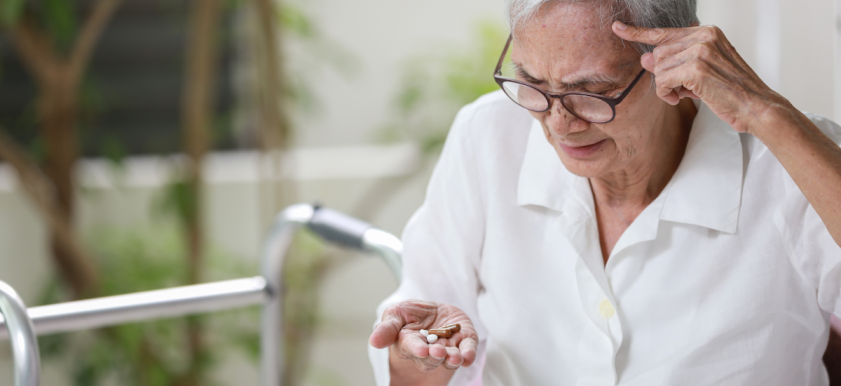Brain health resources

There are many ways your brain health can be impacted over your lifetime, including diseases like dementia or a traumatic brain injury.
Whether the result of an accident or a degenerative disorder, symptoms of brain conditions often drive a need for long-term care – help with activities of daily living like eating, bathing and dressing. In the future, Washingtonians who experience cognitive decline or a brain injury will be able to access benefits through the WA Cares Fund.
Alzheimer’s and dementia
Dementia is a general term describing symptoms like memory loss and difficulties with language, problem solving and other thinking abilities. Alzheimer’s is the most common cause of dementia. According to the Alzheimer’s Association, 127,000 people age 65 and older in Washington are living with Alzheimer’s.
Concerned about a loved one with dementia? The Alzheimer’s Association offers a 24/7 helpline for free, confidential support 365 days a year at 800-272-3900. The association also offers many other resources you may find helpful.
In Washington, the Family Caregiver Support Program is available to unpaid caregivers of adults who need care. Your local program can help you find other resources and services like caregiver support groups and counseling, get you training, help with respite care or caregiving supplies and more.
The state Dementia Action Collaborative also offers a wide range of information and resources for families affected by dementia. Check out the Dementia Road Map to learn more about what to expect at every stage of your journey, the Caregiver Tip Sheets to learn more about how to handle common challenges, and the Dementia Legal Planning Toolkit to help you make and record important financial and health care decisions.
Traumatic brain injuries
A traumatic brain injury (TBI) is an injury that affects how your brain works. People of all ages and backgrounds experience TBIs, which can be the result of a car accident, sports injury, fall or other physical trauma to the brain. Learn more about TBI symptoms.
There are many resources available for people who experience a TBI and their caregivers. If you’re not sure where to start or what kinds of help are available, you can dial 2-1-1 from anywhere in Washington state for free confidential information and referrals to other resources. Learn more about how 2-1-1 can help.
The Brain Injury Alliance of Washington also offers support groups and other resources.
Keeping your brain healthy
Brain health is a critical component of your overall health, especially as you age. Lifestyle factors like a healthy diet, moderate physical activity, and cognitive stimulation may help reduce your risk for cognitive decline. Check out these tips for healthy brain habits to learn more.
Considering how to reduce your risk of falling is also important, especially for older adults. The Department of Health offers many resources on preventing falls.
Interested in hearing more from experts on brain conditions and keeping your brain healthy? Check out the recording of our June webinar, WA Cares Conversations: Caregiving and Brain Health.